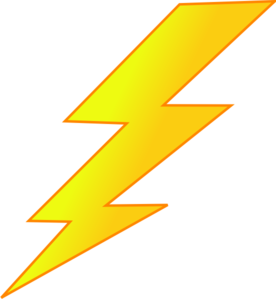
Electrical strikes and surges from lightning can destroy your home, cause severe injury and even death. With the recent lightning strikes affecting residents and their homes across the nation, the nonprofit Federal Alliance for Safe Homes (FLASH)® offers the following tips to help families reduce their risk of lightning injuries and protect their home.
Protect Your Family
Stay alert and listen carefully for the first signs of lightning or thunder. Remember, “If Thunder Roars, Go Indoors™.”Seek shelter. Lightning often hits before the rain begins, so don’t wait for the rain to start before leaving.
If Outdoors
Avoid water, high ground and open spaces.Stay away from metal objects including wires, fences and motors.Find shelter in a sizable building or in a fully enclosed metal vehicle. Completely close the windows and don’t lean on the doors.Don’t get under a small canopy, small picnic shelter or near trees.If you cannot take shelter indoors, crouch down with your feet together and place your hands over your ears to minimize hearing damage from the thunder.Stay at least 15 feet away from other people.
If Indoors
Avoid water and stay away from doors and windows.Do not use landline telephone or headsets. Cell phones are safe.Turn off, unplug and stay away from appliances, computers, power tools and televisions sets as lightning may strike exterior electric and phone lines inducing shocks to equipment inside.
After the Storm
Don’t resume activities until at least 30 minutes after the last lightning strike or thunderclap.Call 911 immediately if anyone is injured and use first aid procedures. Lightning victims do not carry an electrical charge, so it is safe to administer medical treatment.
Protect Your Home
Surge Protective Devices
These systems protect electronic and electrical appliances from all but the most severe electrical surges or direct strikes.They should be installed at all items to be protected. A good electrical grounding system is essential.
Whole House Surge Protection
A whole house surge protection system can be installed on the electric meter or the electrical panel to help protect the appliances and electronic equipment in your house such as computers, TVs and DVD players.Contact your local electric company for installation information. If your utility company doesn’t offer the service, a qualified electrician can install this device at your electrical panel.
Lightning Protection Systems
These systems provide a direct path for lightning to follow to the ground rather than through the house structure and its wiring.Consult a qualified contractor (UL-listed/LPI-certified or qualified electrician) for installation.
For information on protecting your family and home from severe weather, visit FLASH. To learn more about protecting your home from lightning visit the FLASH YouTube Channel.








Be the first to comment